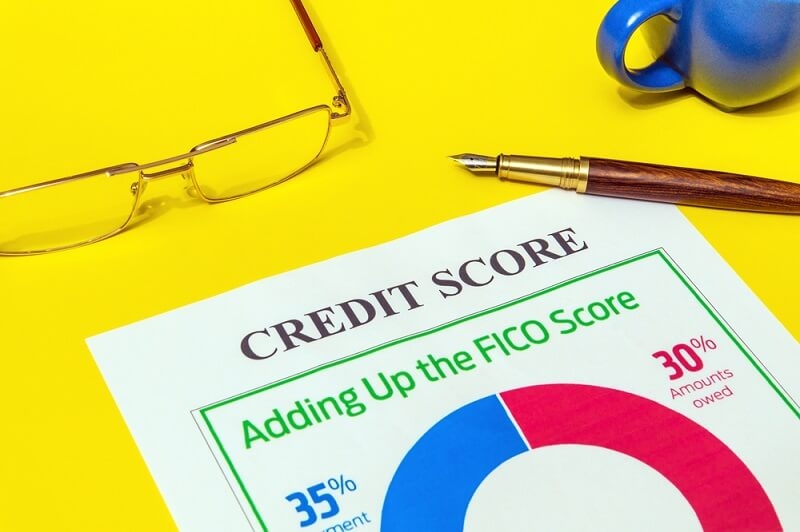
If you've ever applied for a loan or credit card, you have likely encountered the term credit score. But what does a credit score mean? Simply put, a credit score is a three-digit number that shows your financial trustworthiness. The credit score helps potential lenders assess how likely you are to repay borrowed money on time (according to the agreement, you pay them back).
This beginner's guide to credit scores breaks down the basics—how credit scores work, the meaning of a FICO score, and the fundamentals of a credit report. Once you understand what a credit score is, you will be empowered to make financial decisions and maintain a healthy credit profile.
Your credit score reflects your credit history and is evaluated based on your credit report (i.e., how much you owe, if you have paid on time, and how long you have had credit).
Here’s your credit score in plain language:
When lenders see your score, they can quickly assess your ability to handle financial obligations. When you understand how credit scores work, you can take control of your financial fate.
To have a proper understanding of what a credit score is, you need to know how credit scores operate. The score is not random—it derives from the specific reported elements of financial institutions and credit bureaus.
Primary factors that impact your credit score include:
Some (or all) of these factors impact your ability to borrow, via creditworthiness. If you understand how credit scores operate and how to influence relevant factors, you’re able to take action towards improvement.

When you overhear people talking about credit, you will often hear them talk about what a FICO score means. FICO, or Fair Isaac Corporation, is one of the most widely used credit score models in the United States.
FICO scores typically average between 300 and 850 and are determined based on data from your credit report. Lenders use FICO scores as the basis for making informed and timely decisions related to their credit applications.
Why your FICO score is significant:
Understanding the meaning of the FICO score will provide you with insight into how lenders perceive your financial profile and help you improve your score.
To know what a credit score is, you must first understand the basics of a credit report. A credit report is an extensive overview of your financial history compiled by credit bureaus. This report contains information that directly affects your negative credit score.
Key elements of a credit report include:
Checking your credit report regularly can help identify any errors or signs of fraud before it is too late. Since you'll be obtaining most of the score information and history from this report, ensuring its accuracy is highly important. Once you have the basics of credit reports down, you can keep control of your personal financial history.
As an introductory guide to understanding credit scores, it is essential to recognize that these scores serve the purpose of helping lenders make responsible decisions. A credit score measures your likelihood of defaulting on a debt obligation and lends confidence to lenders when making a loan/credit card decision.
However, your credit score can influence more than just a borrowing decision; it can particularly inhibit all the everyday financial choices you make. Your credit score is relevant in any of the following scenarios:
Understanding how a credit score works will help you make more informed financial decisions and avoid unnecessary obstacles.
Now that you realize what a credit score is and understand how credit scores are determined, you can realistically begin to improve yours. The small, consistent actions will have the most significant impact.
Helpful tips you can follow to help you establish and retain good credit:
When you develop habits like these, your credit will remain in good standing. And you will, in the long run, enjoy the benefits of good credit cards and having good financial credibility.
There are many myths about what a credit score is and how it works, and resolving these myths will help you manage your credit with greater confidence.
Myth 1: Checking my credit score will lower it.
Reality: Soft inquiries (such as checking your score) do not lower your rating.
Myth 2: If I have a balance, it will raise my score.
Reality: Paying your balance in full each month is actually healthier for your credit.
Myth 3: Closing an old credit card will raise my credit score.
Reality: Closing old cards may lower your score, as it might shorten your credit history.
Understanding these myths is crucial for anyone following a beginner's guide to credit scores and learning the basics of credit reports.
Your credit score isn’t just a number—it’s a reflection of your financial responsibility. A higher score leads to better opportunities, such as lower loan rates and higher credit limits.
By understanding the FICO score meaning and how credit scores work, you gain control over your financial path. Maintaining good credit can open doors to more affordable borrowing and even improve your overall quality of life.
Knowing what a credit score is helps you take charge of your financial health. With this beginner guide to credit scores, you’ve learned how credit scores work, the FICO score meaning, and essential credit report basics. Utilize this knowledge to establish good credit habits and achieve lasting financial success.
This content was created by AI